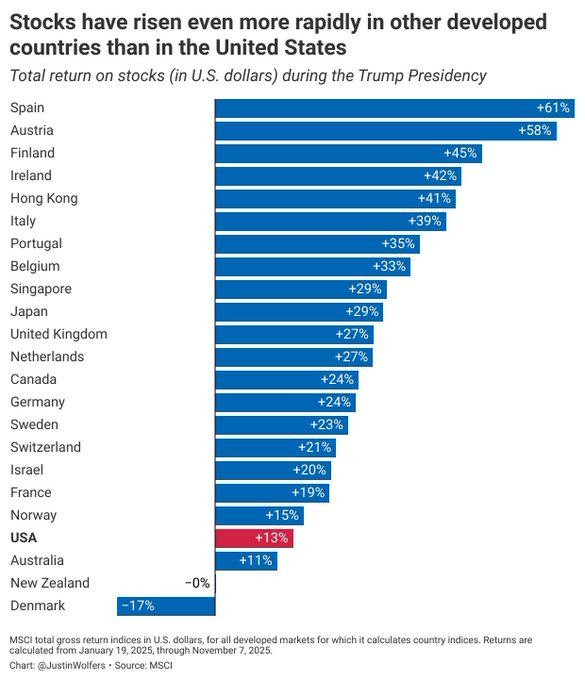Buy European
Overview:
The community to discuss buying European goods and services.
Rules:
-
Be kind to each other, and argue in good faith. No direct insults nor disrespectful and condescending comments.
-
Do not use this community to promote Nationalism/Euronationalism. This community is for discussing European products/services and news related to that. For other topics the following might be of interest:
-
Include a disclaimer at the bottom of the post if you're affiliated with the recommendation.
-
No russian suggestions.
Feddit.uk's instance rules apply:
- No racism, sexism, homophobia, transphobia or xenophobia.
- No incitement of violence or promotion of violent ideologies.
- No harassment, dogpiling or doxxing of other users.
- Do not share intentionally false or misleading information.
- Do not spam or abuse network features.
- Alt accounts are permitted, but all accounts must list each other in their bios.
- No generative AI content.
Useful Websites
-
General BuyEuropean product database: https://buy-european.net/ (relevant post with background info)
-
Switching your tech to European TLDR: https://better-tech.eu/tldr/ (relevant post)
-
Buy European meta website with useful links: https://gohug.eu/ (relevant post)
Benefits of Buying Local:
local investment, job creation, innovation, increased competition, more redundancy.
European Instances
Lemmy:
-
Basque Country: https://lemmy.eus/
-
🇧🇪 Belgium: https://0d.gs/
-
🇧🇬 Bulgaria: https://feddit.bg/
-
Catalonia: https://lemmy.cat/
-
🇨🇿Czech Republic https://lemmings.world/
-
🇩🇰 Denmark, including Greenland (for now): https://feddit.dk/
-
🇪🇺 Europe: https://europe.pub/
-
🇫🇷🇧🇪🇨🇭 France, Belgium, Switzerland: https://jlai.lu/
-
🇩🇪🇦🇹🇨🇭🇱🇮 Germany, Austria, Switzerland, Lichtenstein: https://feddit.org/
-
🇫🇮 Finland: https://sopuli.xyz/ & https://suppo.fi/
-
🇮🇸 Iceland: https://feddit.is/
-
🇮🇹 Italy: https://feddit.it/
-
🇱🇹 Lithuania: https://group.lt/
-
🇱🇺 Luxembourg https://lemmy.dbzer0.com/
-
🇳🇱 Netherlands: https://feddit.nl/
-
🇵🇱 Poland: https://fedit.pl/ & https://szmer.info/
-
🇵🇹 Portugal: https://lemmy.pt/
-
🇸🇮 Slovenia: https://gregtech.eu/
-
🇸🇪 Sweden: https://feddit.nu/
-
🇹🇷 Turkey: https://lemmy.com.tr/
-
🇬🇧 UK: https://feddit.uk/
Friendica:
-
🇦🇹 Austria: https://friendica.io/
-
🇮🇹 Italy: https://poliverso.org/
-
🇩🇪 Germany: https://piratenpartei.social/ & https://anonsys.net/
-
🇫🇷 Significant French speaking userbase: https://social.trom.tf/
-
🇵🇱 Poland: soc.citizen4.eu
Matrix:
-
🇬🇧 UK: matrix.org & glasgow.social
-
🇫🇷 France: tendomium & imagisphe.re & hadoly.fr
-
🇩🇪 Germany: tchncs.de, catgirl.cloud, pub.solar, yatrix.org, digitalprivacy.diy, oblak.be, nope.chat, hot-chilli.im, synod.im & rollenspiel.chat
-
🇳🇱 Netherlands: bark.lgbt
-
🇦🇹 Austria: gemeinsam.jetzt & private.coffee
-
🇫🇮 Finland: pikaviestin.fi & chat.blahaj.zone
Related Communities:
Buy Local:
Continents:
European:
Buying and Selling:
Boycott:
Countries:
Companies:
Stop Publisher Kill Switch in Games Practice:
Banner credits: BYTEAlliance
view the rest of the comments

No it doesn't.
Stocks are a measure of how much investors think the company can profit. If the value of the euro drops a EU stock won't suddenly shoot up to account for the change in exchange rate from EUR to USD. Same thing with U.S. stocks.
In fact the exchange value of the dollar is going way down so it's actually more reasonable to just use percentage change in listed currency.
You can’t compare countries in different currencies. Picking one numeraire is what makes it apples-to-apples, and FX is part of the real return.
Again. No.
If you used EUR for this comparison everything would be -10% or something
When you compare different countries, you have to look at returns in one currency. Otherwise the numbers aren’t comparable. FX moves are just part of the real return from a global perspective.
Put another way, suppose an American buys an Argentinian asset and then Argentina experiences 1000% inflation but the price of the asset goes up 900%. Are you telling me that you think the Argentinian stock market is doing great? The point of using the same unit across countries is to avoid this issue.
The statistic is comparing percentages, those dont have a currency.
Aa an exaggerated example: If you make a statistic about how much trees have grown in one year and they doubled in size everywhere, it doesnt matter if you measure in cm or inches. But if during that time someone redefines 1inch = 5cm and you only measure in inches, suddenly trees in metric countries didnt grow at all. Weird.
The inch/cm analogy only works if the conversion rate is fixed. Currencies aren’t like that. Their conversion rates change over time. That changing conversion is part of the return when you compare countries. That’s why you need to put everything in one currency first, then calculate the percent change.
Your analogy actually proves my point: if the ‘inch’ changes relative to the cm over time, then you’d have to convert all measurements to one unit before comparing how fast trees grow, even though the percent growth itself is unit-free.